#lord I'm sorry
Text
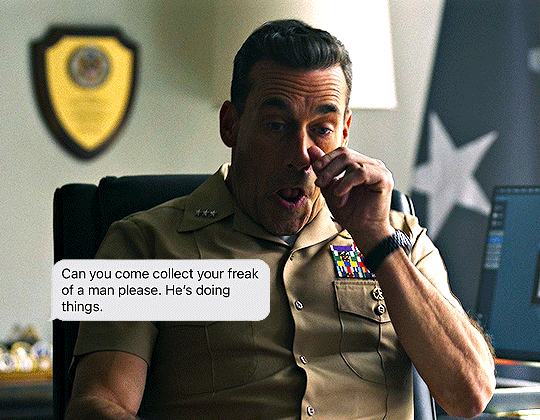

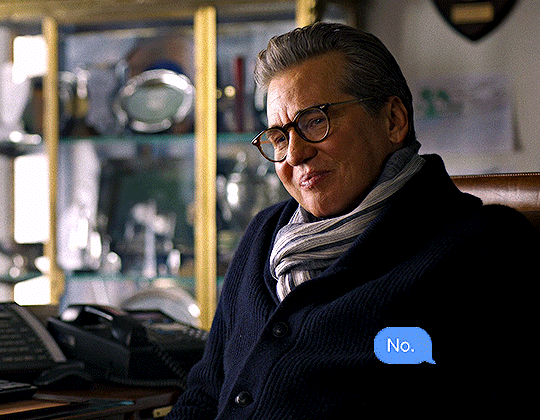
I set him loose on purpose
insp
#topgunedit#top gun: maverick#icemav#filmedit#filmgifs#val kilmer#tom cruise#pete maverick mitchell#tom iceman kazansky#jon hamm#beau cyclone simpson#*#i think i'm funny#if you see me posting top gun no you don't#sorry for having a tom cruise breakdown in the year of our lord 2023#as if it's my fault
3K notes
·
View notes
Text

@pumpkiinns
This is actually quite interesting, to be honest.
#homestuck#hs#vriska serket#john egbert#june egbert#junevris#req/ask#oh lord i'm change my artstyles too much#sorry if it late i been quite busy these days
611 notes
·
View notes
Text





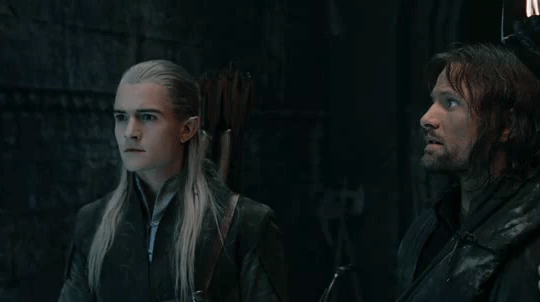
thanks to the original post
13K notes
·
View notes
Text
Those three really are having their very own magical girl moment, eh.
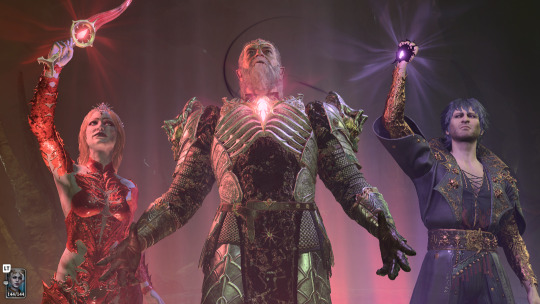
#you can not tell me this wasn't choreographed#and gortash 100% messed up the choreo by lifting the wrong arm#i mean#I'm sorry chap but bloody hell#you're ruining the composition#for shame g#for shame#baldur's gate 3#baldurs gate 3#baldur's gate#baldurs gate#bg3#bg3 orin#orin the red#bg3 gortash#lord enver gortash#bg3 ketheric#general ketheric thorm
1K notes
·
View notes
Text
"asexual discourse" is so funny cause dude that's not discourse and it's never been discourse. it's not an argument and it's not a conversation bitches are just yelling at us unprompted and then making up people to get mad at 😭
#exclusionists will act like they're in the fucking trenches when they're posting#as if they're not taking the time to walk into someone else's community without provocation and start being nasty.#saw a post the other day that was saying smth aphobic and was like 'it's true and we should be allowed to say it'#babe nobody's Stopping you. you can say whatever the fuck you want.#thing is though that when you say shitty things. people don't typically like it <3#anyway die mad sorry that you fell for heteronormativity and amatonormativity and assume both to be the norm.#i'm gonna keep creating community with other queer people and you are more than welcome to go off and die alone <3#also if you're fr going into ace discourse in the year of our lord 2024. jesus fucking christ get a hobby#aromantic#aromanticism#arospec#aroace#aspec#talking#asexual#ace discourse#ace exclusion
1K notes
·
View notes
Text

Here is some Zuko bc I've been obsessed over atla since the pandemic started and the live action gave me an excuse to reignite my love for it with my friends.
#Guys I'm so sorry 😫 I've been so busy.#anyway#i feels as though its obvious what kind of characters i tend to kin#its embarrassing 😔#also#of course i ship Zukka#klance is just zukka in a different font#zuko#zuko atla#prince zuko#avatar the last airbender#atla#atla live action#atla la#fire nation#fire lord zuko#zuko avatar#zukka#art#artists on tumblr#digital art#digital illustration#fanart#avatar fanart#netflix avatar#avatar#atla fanart#zuko fanart
772 notes
·
View notes
Text
#MOHG IS GOING TO BE BEAT UP SO BADLY#I'M SORRY THIS IS SO UNFUNNY BUT I HAD TO#also the first thing I animated in 3 years so bear with me pls T_T#mohg#mohg lord of blood#elden ring#elden ring dlc#elden ring fanart#animation#2d animation#meme#animation meme#2d animator#shadow of the erdtree
537 notes
·
View notes
Text
Elrond: Okay, so, Glorfindel can't join the Fellowship because he literally glows in the dark and would alert Sauron to everyone's location. Elves with such awesome power must stay behind. Legolas, you shall go.
Legolas: :)
Legolas: ...
Legolas: Wait >:(
#I'm sorry Leggy XD#Also: Glorfindel glowing in the corner like a disappointed firefly#lotr#lord of the rings#elrond#elrond peredhel#legolas#glorfindel#incorrect lord of the rings quotes
2K notes
·
View notes
Text
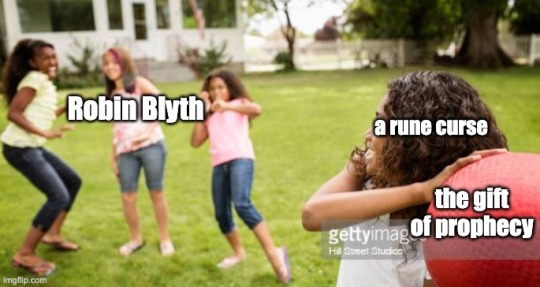

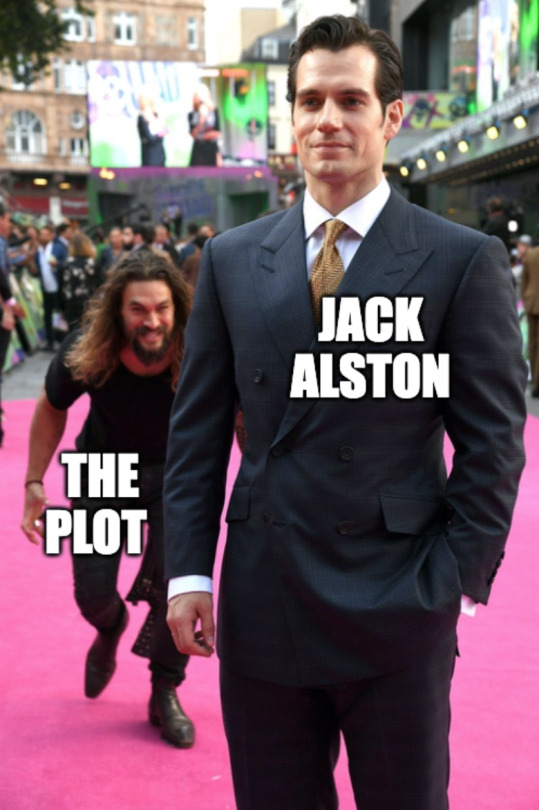
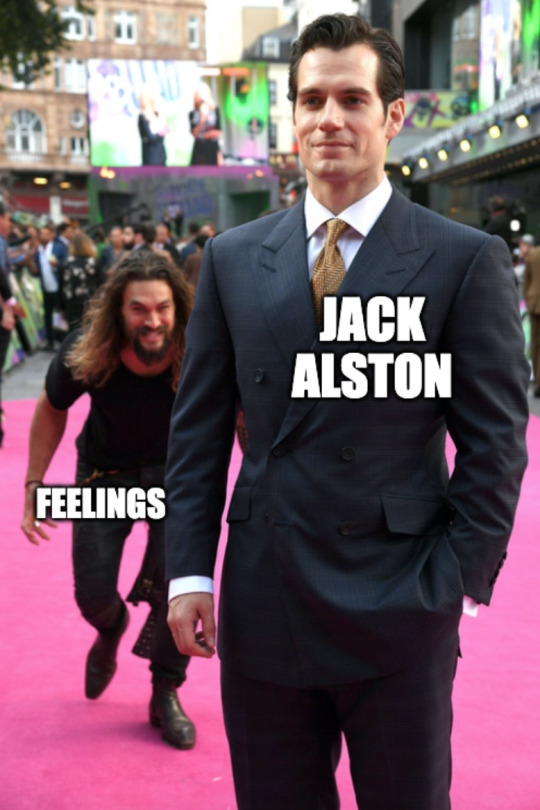

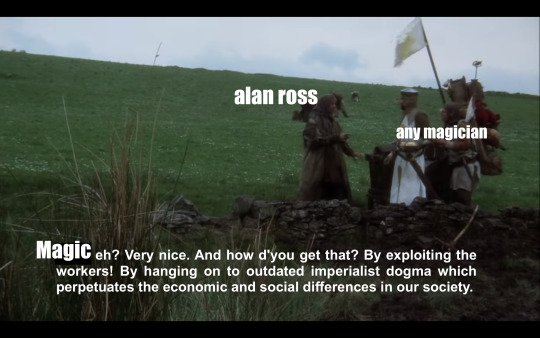

made some memes
#a marvellous light#a restless truth#a power unbound#the last binding#maud blyth#robin blyth#alan ross#jack alston#lord hawthorn#my pinned post makes the henry cavill meme template even funnier#that man is about to get tackled by so many things#(including maud)#I'm sorry violet and edwin and adelaide no meme templates came to mind
421 notes
·
View notes
Text
A small domestic scene with Eddie re-reading the Lord of the Rings, specifically when Gimli is mesmerized by Galadriel. He asks her for one hair from heir fair head, she gives him three, and Gimli vows to set them in stone in his house.
Eddie reads about the hair “which surpasses the gold of the earth as the stars surpass the gems of the mine.”
Eddie looks up from the book and stares at his sleeping boyfriend, or more precisely, his chest hair.
"I get it now," he mutters and goes back to reading.
#steddie#steve harrington#eddie munson#lord of the rings steddie#steddie drabble#steddie crack#I'm so sorry for defiling Tolkien's work like that#But come on#hair
333 notes
·
View notes
Text

listening to a lot of spyair these days......i miss u ossan.....
#gintama#gintoki#sakata gintoki#gintama fanart#been so long since i've drawn him!!!! also i'm so sorry for the spam of posts lord my tumblr theme is super old and was giving problems
403 notes
·
View notes
Text

if loving them is wrong i don’t want to be right

if being right means being without them i'd rather live a wrong doing life


#griddlehark#the locked tomb#i'm sorry you hate it when f/f ships have like actual drama and conflict and stakes#also congrats on finding out what feudalism and nobility means but are you really saying all knight/lady or knight/lord ships are evil???#wlw meta#my meta
492 notes
·
View notes
Text
One thing that I feel is really interesting and often forgotten about Essek is that fundamentally, his characterization has been from the start based upon his desperation for external perspectives and connection, which, along with much of his narrative and mechanical positioning, means that he actually has an extraordinary and almost (but not actually, as I'll show) counterintuitive capacity for both growth and trust.
(Buckle in. This is a long one.)
In particular, I would argue, knowing now that many places where the plot touches Ludinus have long been marked for connecting back into the current plot, that he was quite possibly built as a prime candidate for radicalization by the Ruby Vanguard. He felt isolated from his culture, he was desperate for other connection, and he was certainly of the type to believe he was too smart to be drawn into such a thing, given his initial belief that he could control the situation and the fallout. If things had gone any other way, he easily could've been on the other side by now.
As such, he has been hallmarked by being fairly open to suggestion, perhaps for this reason, but the thing about that kind of trait is that it is both how people are radicalized and deradicalized. This is certainly true of Essek, who experienced genuine kindness and quite frankly strangeness from the Nein and was able to move from the isolation the Assembly had engendered to meaningful and genuine connection, largely propelled by his own internal reflection. By the time Nein are aware of his crimes, he's already begun to express regret to an extent and, furthermore, doubt in the Assembly, including explicitly drawing a line against Ludinus, even in a position where he was on his own and probably quite vulnerable.
Similarly, when the Nein reach the Vurmas Outpost some weeks later, he has moved from regret for the position he's ended up carrying a heavy remorse. This makes sense! He's fairly introspective, seems used to spending a lot of time in his own head, and was left with plenty to mull over. It's not some kind of retcon for him to have progressed well past where the Nein left him; it just means he's an active participant in the world who has done his own work in the meantime.
This is another interesting aspect to him. I've talked about this a bit before but I cannot find the post so I'll recap here: antagonists in D&D have significantly more agency than allied NPCs. Antagonists are active forces, against which the party is meant to struggle; allies are meant to support the PCs, which means they tend to be more passive in both their actions and their character growth. Essek was both built as an antagonist, in a position that gives him significant agency, and also was then given significant opportunity to grow specifically to act as a narrative mirror for Caleb's arc. Even when he becomes a more traditional D&D ally, he still retains much of that, though he occupies a supporting role.
I believe that this is especially true because of the nature of Caleb's arc, which I've already written on; the tl;dr of this post is that Caleb is both convinced that he is permanently ruined and also desperate to prove that change is possible. Essek is that proof, because he is simply the character in a position to do so. But this also means that his propensity for introspection and openness is accentuated! He has to do the legwork on his own, for the most part, because that's where he is in the meantime.
But he still ends the campaign necessarily constricted; he is under significant scrutiny, he's at risk from the Assembly, and he goes on the run fairly soon after the story ends. He spends most of the final arc anxious and paranoid, which is valid given the crushing reality of his situation. It would be very easy to extrapolate that seven years into this reality, he would be insular, closed off, and suspicious of strangers, even in spite of the lessons he's learned from the Nein and their long term exposure.
So seeing his openness and lightness now is surprising, but at the same time, given this combination of factors in his position in the narrative over time and his defining traits, it's not by any means unreasonable.
But one thing that I found so delightful is how much trust he exhibits, which is obviously a wild thing to say about Essek in particular, given much of what he learns is both earning and offering trust, which was something he says explicitly in 2x124 that he's never really experienced: "I've never really been trusted and so I did not trust." It makes up much of the progression of his relationship with Caleb, and the trust that he is offered by the Nein in walking off the ship is the impetus he needs to grow.
But I think it's easy to talk about trust when it comes to people who have proven themselves to you or to whom you've ingratiated yourself, and that's really the most we can say about Essek by the time he leaves the Blooming Grove. There is this sense in a lot of discussion of trust (not solely in this fandom) that it is only related to either naivete or love, but there's far more to it. Trust at its best is deliberate—cultivating an openness to the world at large is a great way to combat cynicism and beget connection instead. It allows a person to maintain curiosity and be open to experience, but it can be incredibly difficult to hold onto.
It is clear that the Essek we meet now is a very pointedly and intentionally trusting individual. He trusts Caleb and by extension Caleb's trust in Keyleth, as he shows up and picks up a group of strangers from a foreign military encampment and walks in without issue. He trusts the Hells to follow his lead moving through Zadash and to exhibit enough discretion so as to avoid bringing suspicion upon all of them. He trusts that Astrid will respond well to his entrance, but he also trusts himself and the Hells enough to execute a back-up plan in the case that she doesn't. In the end, he even trusts them enough to give them his name and identity.
He doesn't scan as someone who has spent half a dozen years living like a prey animal, afraid of any shadow he runs across in an alley, withdrawn into himself and an insular family, which would've been an easy route for him to take. He scans as someone who has learned the kind of trust borne of learned confidence and a trained eye for good will and kindness, which are crucial weapons one would need for staving off cynicism in his circumstances—as if he has survived thanks more to connection and kindness than paranoia and isolation. (If we want to be saccharine about it, he scans quite poignantly as a member of the Mighty Nein.)
So it is easy to imagine this trust and openness as a natural progression of his initial search for perspectives external to his own cultural knowledge. Though he makes those first connections with the Assembly to try to vindicate his personal hypotheses, he finds in them exposure to the deepest corruption among Exandrian mortals, which could've—and did, for a time—turned him further down that same dark path.
But it's also this same openness to exposure from the wider world that allows the Nein to influence him for the better, and in spite of the challenges he's certainly faced simply surviving over the past seven years, he seems to have held onto this openness enough to move through the world with self-assurance and a willingness to extend the kinds of trust and good will that he has been shown.
(I would be remiss not to mention that I was reminded about my thoughts on this by this lovely post from sky-scribbles and their use in the tags of 'light' to describe Essek's demeanor this episode, which is really such an apt word for it.)
#something something hope is a weapon hope is a discipline hope is a garden to cultivate!!!#HE'S SO GOOD HE IS TRULY EXEMPLAR OF THE WHOLE PHILOSOPHY OF THE NEIN AND I DO NOT THINK THAT'S AN ACCIDENT#truly just like. enormous proponent of letting trust and curiosity into your heart regardless of the horrors.#it's hard and it makes you more vulnerable and sometimes it hurts so so much but it will also save your fucking life!#cr spoilers#critical role#essek thelyss#cr meta#I was gonna apologize for the length but I'm not sorry. I'm also not sorry for being insane about him but he's so special to me.#head in my hands he's so GOOD HE'S BEST BOI! GUIDING LIGHT NORTH STAR!!! LOOK AT HIM!!!#also truly if i had two nickels for a span of time with no essek sightings where I wrote a lot of fic#with deliberate personal acknowledgment that I was writing some pretty maximal arcs for him in terms of character growth#and then end up getting essek for half an episode and having to go OH WE'RE GOING THAT FAR ACTUALLY. FUCKING INCREDIBLE.#yanno. two nickels. but good lord I am thriving that it's happened twice#augh this is ONE of the pieces I need to write this week. we're not gonna talk about it
343 notes
·
View notes
Text
I'm thinking about the horror of the Doctor from the perspective of non-companions again, especially as it relates to people those companions know.
Rose? "Ran away" (not wrong) for "a year" (a week) with a "man" (alien) "twice her age" (approximately 50 times her age but yeah, he is Time Lord middle aged), and then gives absolutely no explanation for how or why that happened, except that she was "travelling".
Then when her mum does get an explanation (which, frankly, is only comforting because of the unfamiliarity of the alternative given. The devil you know.), Rose barely checks back in.
She almost dies for him. When she thinks he's dead, she's changed in a way her family doesn't know how to handle. Then she's gone for who knows how long and comes back with the Doctor wearing a new face.
When her original tenure as a companion ends, and Rose lives in Pete's World, she works for Torchwood/UNIT (they become the same organization). She volunteers for the Dimension Cannon. She explains to the alternate earth how to rig up a time machine.
She's changed in ways that no one else can really understand.
Amy? There's everything with River Song of course (though I'm still not there in my viewing), him running away with Amy the night before her and Rory's wedding, and also the connection between the Doctor and the Time Crack being the reason all of Amy's family's dead. Obvious stuff.
However he's also the strange man who broke into this child's house and made a mess of her life that she never got over, that promised to take her away from here, that she wrote about and drew and carved and made her friends dress up as.
And they sent her to psychiatrist after psychiatrist without any help. In their perspective, to work through what she imagined. In her perspective, to tell her that her reality wasn't real.
And then he comes back.
And to some extent, later, when he shows himself to everyone, isn't that more frightening? That the story your child told you, of the strange man she met as a child, of time travel, of nearly being stolen away, hadn't been a lie, or a misinterpretation, or an imagining?
And so he shows up at her wedding. And steals her away again.
Donna I feel like has the least horror until her final episode. I think exploring the in between section of her meeting the Doctor and finding him again would be interesting, but not exactly horror. More an exploration of how obsessive the companions can get about him, how it eats their whole lives with even one encounter, even as it makes them better people.
And then, obviously, the horror of having your mind altered and erased against your will by someone you trusted. For your own good, of course. Because he knows best. How could you know better than him? He's ancient. He's practically all knowing.
Shouldn't you be grateful?
(And he's forgiven.)
#doctor who#the doctor#ninth doctor#tenth doctor#amy pond#rose tyler#donna noble#9th doctor#10th doctor#and this is relatively healthy for companion/time lord relationships#we see what it looks like when it goes wrong#its the Master and Lucy#or the Master and Tala#Also while I think you can say that Rose's life was better for having the Doctor in it#she's happier. she has. well. she's happier in the relationship she's in#than the one she was in before.#She wouldn't take it back for the world.#I'm not sure you could say the same about Amy.#Because if it wasn't for the Doctor#then the crack wouldn't have existed in the first place#she wouldn't be AS distrusted by her community#(she was still a strange girl#but it would have been a more “normal” strangeness)#she still would have had Rory. And without the crack#her family too.#y'know?#I have less to say about Donna and I'm not sure what to write about Martha at all. I'm sorry friends. Rose and Amy live in my brain#and make ME pay rent.#rose rambles#none of this is complaining this is what makes dw worth watching sgsfsfd
226 notes
·
View notes
Text
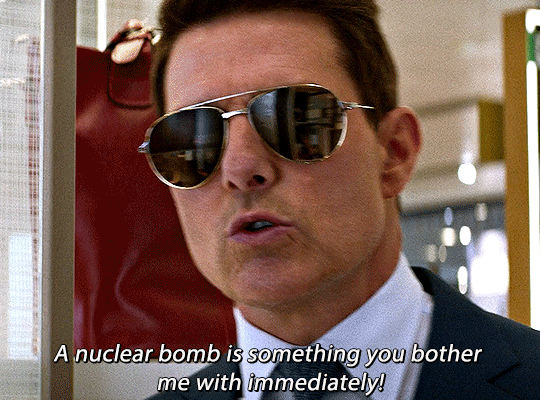






Tom Cruise as Ethan Hunt
MISSION: IMPOSSIBLE - DEAD RECKONING
dir. Christopher McQuarrie
#alternatively captioned: dad energy off the charts#mission impossible#missionimpossibleedit#mission: impossible#dead reckoning part one#tom cruise#tcruiseedit#ethan hunt#filmedit#filmgifs#movieedit#moviegifs#*#sorry for having a tom cruise breakdown in the year of our lord 2023#as if it's my fault#gonna need a new tom cruise tag soon#since 2023 is ending#and i'm still here
504 notes
·
View notes
Text



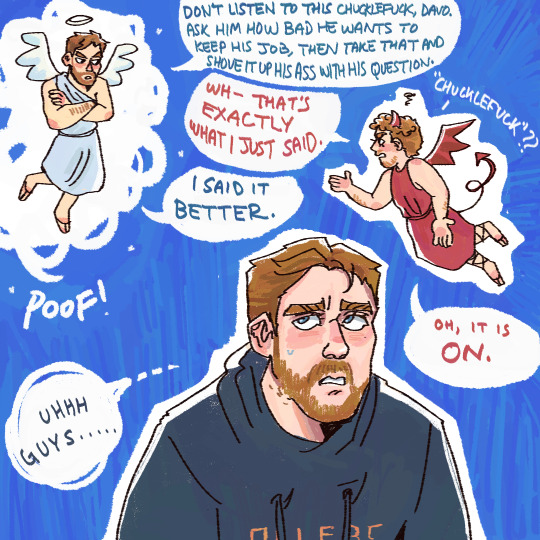

mcmattdrai on the brain so i'm testing it out with a comic....
#i have no idea how to format comics or write legibly dear lord i'm sorry guys#“this took me too long never doing this again!”#*promptly starts another comic based on an ask*#connor mcdavid#leon draisaitl#matthew tkachuk#edmonton oilers#mcmattdrai#hockey art#yjart#comic#mattdrai#mcdrai#mcmatt#angel/devil mcmattdrai#hrpf#hockey rpf
761 notes
·
View notes